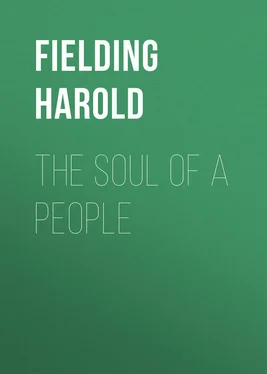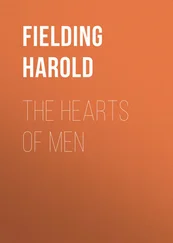Harold Fielding - The Soul of a People
Здесь есть возможность читать онлайн «Harold Fielding - The Soul of a People» — ознакомительный отрывок электронной книги совершенно бесплатно, а после прочтения отрывка купить полную версию. В некоторых случаях можно слушать аудио, скачать через торрент в формате fb2 и присутствует краткое содержание. Жанр: foreign_religion, foreign_antique, foreign_prose, на английском языке. Описание произведения, (предисловие) а так же отзывы посетителей доступны на портале библиотеки ЛибКат.
- Название:The Soul of a People
- Автор:
- Жанр:
- Год:неизвестен
- ISBN:нет данных
- Рейтинг книги:5 / 5. Голосов: 1
-
Избранное:Добавить в избранное
- Отзывы:
-
Ваша оценка:
- 100
- 1
- 2
- 3
- 4
- 5
The Soul of a People: краткое содержание, описание и аннотация
Предлагаем к чтению аннотацию, описание, краткое содержание или предисловие (зависит от того, что написал сам автор книги «The Soul of a People»). Если вы не нашли необходимую информацию о книге — напишите в комментариях, мы постараемся отыскать её.
The Soul of a People — читать онлайн ознакомительный отрывок
Ниже представлен текст книги, разбитый по страницам. Система сохранения места последней прочитанной страницы, позволяет с удобством читать онлайн бесплатно книгу «The Soul of a People», без необходимости каждый раз заново искать на чём Вы остановились. Поставьте закладку, и сможете в любой момент перейти на страницу, на которой закончили чтение.
Интервал:
Закладка:
As the prince returned from his last drive in his garden with resolve firmly established in his heart, there came to him the news that his wife had borne to him a son. Wife and child, his cup of desire was now full. But his resolve was unshaken. 'See, here is another tie, alas! a new and stronger tie that I must break,' he said; but he never wavered.
That night the prince left the palace. Silently in the dead of night he left all the luxury about him, and went out secretly with only his faithful servant, Maung San, to saddle for him his horse and lead him forth. Only before he left he looked in cautiously to see Yathodaya, the young wife and mother. She was lying asleep, with one hand upon the face of her firstborn, and the prince was afraid to go further. 'To see him,' he said, 'I must remove the hand of his mother, and she may awake; and if she awake, how shall I depart? I will go, then, without seeing my son. Later on, when all these passions are faded from my heart, when I am sure of myself, perhaps then I shall be able to see him. But now I must go.'
So he went forth very silently and very sadly, and leapt upon his horse – the great white horse that would not neigh for fear of waking the sleeping guards – and the prince and his faithful noble Maung San went out into the night. He was only twenty-eight when he fled from all his world, and what he sought was this: 'Deliverance for men from the misery of life, and the knowledge of the truth that will lead them unto the Great Peace.'
This is the great renunciation.
I have often talked about this with the monks and others, often heard them speak about this great renunciation, of this parting of the prince and his wife.
'You see,' said a monk once to me, 'he was not yet the Buddha, he had not seen the light, only he was desirous to look for it. He was just a prince, just a man like any other man, and he was very fond of his wife. It is very hard to resist a woman if she loves you and cries, and if you love her. So he was afraid.'
And when I said that Yathodaya was also religious, and had helped him in his thoughts, and that surely she would not have stopped him, the monk shook his head.
'Women are not like that,' he said.
And a woman said to me once: 'Surely she was very much to be pitied because her husband went away from her and her baby. Do you think that when she talked religion with her husband she ever thought that it would cause him to leave her and go away for ever? If she had thought that, she would never have done as she did. A woman would never help anything to sever her husband from her, not even religion. And when after ten years a baby had come to her! Surely she was very much to be pitied.' This woman made me understand that the highest religion of a woman is the true love of her husband, of her children; and what is it to her if she gain the whole world, but lose that which she would have?
All the story of Yathodaya and her dealings with her husband is full of the deepest pathos, full of passionate protest against her loss, even in order that her husband and all the world should gain. She would have held him, if she could, against the world, and deemed that she did well. And so, though it is probable that it was a great deal owing to Yathodaya's help, to her sympathy, to her support in all his difficulties, that Gaudama came to his final resolve to leave the world and seek for the truth, yet she acted unwittingly of what would be the end.
'She did not know,' said the woman. 'She helped her husband, but she did not know to what. And when she was ill, when she was giving birth to her baby, then her husband left her. Surely she was very much to be pitied.'
And so Yathodaya, the wife of the Prince Gaudama, who became the Buddha, is held in high honour, in great esteem, by all Buddhists. By the men, because she helped her husband to his resolve to seek for the truth, because she had been his great stay and help when everyone was against him, because if there had been no Yathodaya there had been perchance no Buddha. And by the women – I need not say why she is honoured by all women. If ever there was a story that appealed to woman's heart, surely it is this: her love, her abandonment, her courage, her submission when they met again in after-years, her protest against being sacrificed upon the altar of her husband's religion. Truly, it is all of the very essence of humanity. Whenever the story of the Buddha comes to be written, then will be written also the story of the life of Yathodaya his wife. If one is full of wisdom and teaching, the other is full of suffering and teaching also. I cannot write it here. I have so much to say on other matters that there is no room. But some day it will be written, I trust, this old message to a new world.
CHAPTER III
HE WHO FOUND THE LIGHT – II
'He who never spake but good and wise words, he who was the light of the world, has found too soon the Peace.' — Lament on the death of the Buddha.
The prince rode forth into the night, and as he went, even in the first flush of his resolve, temptation came to him. As the night closed behind he remembered all he was leaving: he remembered his father and his mother; his heart was full of his wife and child.
'Return!' said the devil to him. 'What seek you here? Return, and be a good son, a good husband, a good father. Remember all that you are leaving to pursue vain thoughts. You, a great man – you might be a great king, as your father wishes – a mighty conqueror of nations. The night is very dark, and the world before you is very empty.'
The prince's heart was full of bitterness at the thought of those he loved, of all that he was losing. Yet he never wavered. He would not even turn to look his last on the great white city lying in a silver dream behind him. He set his face upon his way, trampling beneath him every worldly consideration, despising a power that was but vanity and illusion; he went on into the dark.
Presently he came to a river, the boundary of his father's kingdom, and here he stopped. Then the prince turned to Maung San, and told him that he must return. Beyond the river lay for the prince the life of a holy man, who needed neither servant nor horse, and Maung San must return. All his prayers were in vain; his supplications that he might be allowed to follow his master as a disciple; his protestations of eternal faith. No, he must return; so Maung San went back with the horse, and the prince was alone.
As he waited there alone by the river, alone in the dark waiting for the dawn ere he could cross, alone with his own fears and thoughts, doubt came to him again. He doubted if he had done right, whether he should ever find the light, whether, indeed, there was any light to find, and in his doubt and distress he asked for a sign. He desired that it might be shown to him whether all his efforts would be in vain or not, whether he should ever win in the struggle that was before him. We are told that the sign came to him, and he knew that, whatever happened, in the end all would go well, and he would find that which he sought.
So he crossed the river out of his father's kingdom into a strange country, and he put on the garment of a recluse, and lived as they did.
He sought his bread as they did, going from house to house for the broken victuals, which he collected in a bowl, retiring to a quiet spot to eat.
The first time he collected this strange meal and attempted to eat, his very soul rose against the distastefulness of the mess. He who had been a prince, and accustomed to the very best of everything, could not at first bring himself to eat such fare, and the struggle was bitter. But in the end here, too, he conquered. 'Was I not aware,' he said, with bitter indignation at his weakness, 'that when I became a recluse I must eat such food as this? Now is the time to trample upon the appetite of nature.' He took up his bowl, and ate with a good appetite, and the fight had never to be fought again.
Читать дальшеИнтервал:
Закладка:
Похожие книги на «The Soul of a People»
Представляем Вашему вниманию похожие книги на «The Soul of a People» списком для выбора. Мы отобрали схожую по названию и смыслу литературу в надежде предоставить читателям больше вариантов отыскать новые, интересные, ещё непрочитанные произведения.
Обсуждение, отзывы о книге «The Soul of a People» и просто собственные мнения читателей. Оставьте ваши комментарии, напишите, что Вы думаете о произведении, его смысле или главных героях. Укажите что конкретно понравилось, а что нет, и почему Вы так считаете.












